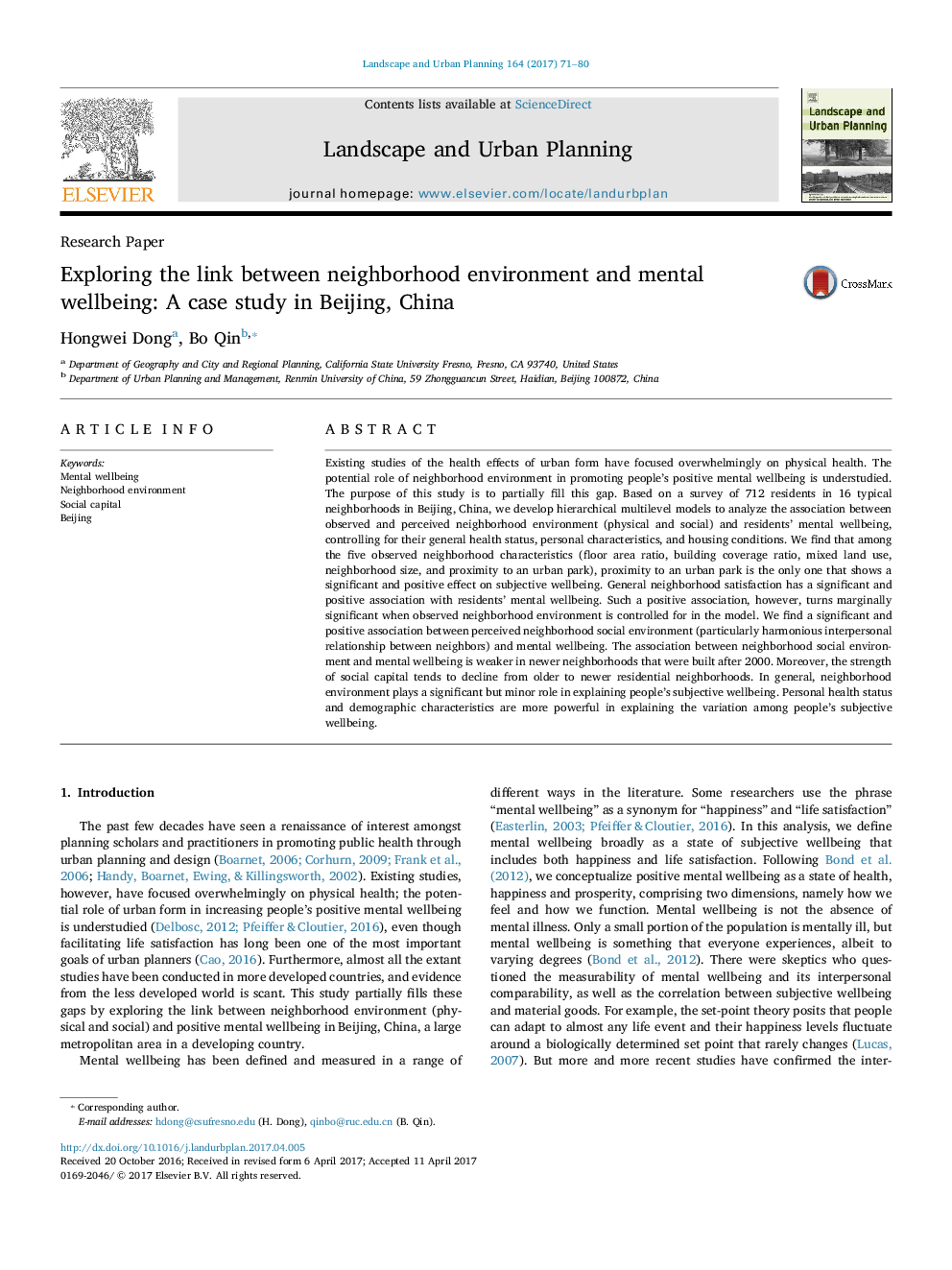ترجمه فارسی عنوان مقاله
بررسی ارتباط بین محیط محله و سلامت روحی: مطالعه موردی در پکن، چین
عنوان انگلیسی
Exploring the link between neighborhood environment and mental wellbeing: A case study in Beijing, China
| کد مقاله | سال انتشار | تعداد صفحات مقاله انگلیسی |
|---|---|---|
| 127570 | 2017 | 10 صفحه PDF |
منبع

Publisher : Elsevier - Science Direct (الزویر - ساینس دایرکت)
Journal : Landscape and Urban Planning, Volume 164, August 2017, Pages 71-80
ترجمه کلمات کلیدی
رفاه ذهنی، محله محله، سرمایه اجتماعی، پکن،
کلمات کلیدی انگلیسی
Mental wellbeing; Neighborhood environment; Social capital; Beijing;

